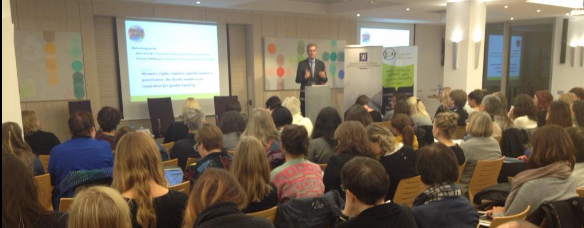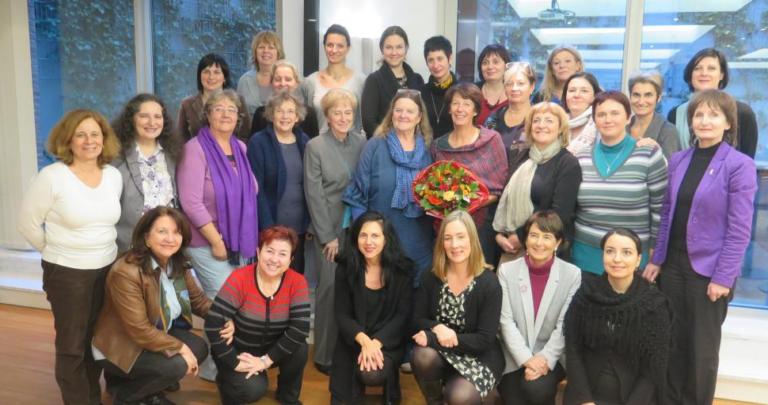[Brussels, 04 February 2013] The European Institute for Gender Equality (EIGE) has issued its report “Review of the Implementation of the Beijing Platform for Action in the EU Member States: Violence against Women – Victim Support”. EIGE’s Report delivers a full set of comparable and reliable data and an in-depth overview of the range, extent, actual use and quality of support services for women victims of domestic violence in the 27 EU Member States and Croatia. It finds out that in the EU, 9 out of 10 victims of intimate partner violence are women.
The EWL welcomes this report, even if it focuses mainly on only one form of violence against women, which is domestic violence against women. It nevertheless highlights the risks of many national policies to develop gender-blind approaches, based on a failure to address the root causes of men’s violence against women. Implementation and coordination of existing measures are pointed out as crucial aspects to be monitored, especially with regards to prosecution, protection orders and training if professionals. Gender mainstreaming should form an integral part of all policies on violence against women.
The EIGE also makes recommendations for the improvement of victim support services and calls for specialised immediate and long-term services, sustainable funding and support to women’s NGOs. When it comes to data, the EIGE gets to the same conclusion as the EWL has been pointing out to for years: the lack of data availability, the discrepancy between countries about definitions; it proposes lists of data to be collected by the EU Member States. Interestingly, the EIGE suggests the setting up of observatories at national level, an idea which has been supported by the EWL and its European Observatory on violence against women.
For the EWL, this EIGE reports is instrumental as it brings again the issue of violence against women on the political agenda of the EU, but also gives evidence-based information about the lack of unified approach to end violence against women in the EU. The EWL therefore hopes that the report will be understood as a background research justifying the urgent need for an EU Strategy to end violence against women.



